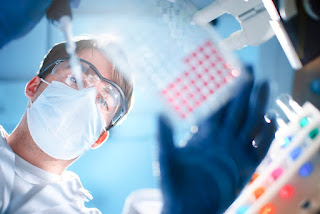How CROs Ensure Reliable Study Results with Robust Sample Management
If you hope to get reliable, robust data from clinical trials to better inform decision-making, your CRO will need proper handling of specimens obtained from trial participants and samples prepared for lab analysis. Their precise, timely treatment is vital to making go/no-go decisions for a new therapeutic drug. There must be a certainty to the data that comes from proper handling to give the highest accuracy of results to inform decisions. The quality of data depends on rigorous sample management. Integrity needs to be safeguarded at every step.
A CRO partner conducting preclinical and clinical studies and providing bioanalytical services must ensure continuity of processes, knowledge sharing, and long-term storage of samples in a centralized location. Here is everything you need to know about choosing the right CRO for your sample management needs.
Proper Collection and Storage Conditions
There are many different sample types across preclinical studies and clinical trials. The CRO will need a variety of storage containers set at proper temperatures to ensure the integrity of the samples. Stabilizers, anticoagulants, and other preservatives may be necessary. The CRO should have a comprehensive sample collection manual detailing the requirements, ensuring that study personnel are well informed. The CRO should also be flexible to accommodate study variables.
Standardizing Workflows Improves Risk Management and Chain of Custody
To minimize potential risks to sample integrity or breaks in the chain of custody, the CRO should have consistent, standardized workflows. An electronic data capture system at the clinical site can help ensure complete data entry. This decreases erroneous identification of clinical samples or mislabeling. An EDC system can also track all relevant information for specimens, accounting for them as they move from collection to transport and lab analysis before going into storage. A laboratory informatics management system should be used in a bioanalytical laboratory to ensure chain of custody and traceability.
Understanding Environmental Conditions with Stability Testing
Stability testing is needed to understand which samples will remain viable when tested against certain environmental conditions, such as time, humidity, temperature, agitation, evaporation, and light. Shelf-life stability in those conditions should be determined and maintained. Short-term and long-term stability are both important.
Laboratory Management for Keeping Data Organized
Clinical samples are entered into the LIMS at the bioanalytical site according to labeling and documentation provided by the clinical site. Each sample tube will be assigned a barcode if the clinical site uses an EDC. The LIMS will use that barcode. This makes it much easier to manage than manually prepared documentation. It helps immediately identify any discrepancies.
Managing Bioanalytics
You will need a comprehensive sample management program that can handle a wide variety of matrices for bioanalysis. It will require robust method development and validation expertise. The laboratory must have exhaustive procurement procedures, as well as an in-house inventory of matrices available for validation, stability testing, sample analysis, and method development. This can be important for later phases, such as when it comes to CDMO pharma services, especially when determining the best method for delivery.
About Altasciences
Altasciences, a mid-sized contract research organization, knows drug development can be a complex process. The Altasciences team can make your organization’s next drug development project smooth and streamlined. As an integrated CRO with pharmaceutical CDMO capabilities, Altasciences offers partners over 25 years of research experience. Many pharmaceutical and biotechnology companies have come to rely on Altasciences’ innovative, integrated approach for preclinical studies, clinical trials, bioanalysis, and formulation and manufacturing. Partnering with Altasciences means gaining their team’s expertise in various therapeutic indications and study types. This includes valuable experience in first-in-human clinical trials and CNS clinical trials. Best of all, the CRO/CDMO offers clinical trial partners access to a wide variety of resources, including more than 580 beds, a highly trained and experienced staff, and a recruiting database of over 400,000 potential participants.
Partner with Altasciences for reliable data at https://www.altasciences.com/




Comments
Post a Comment